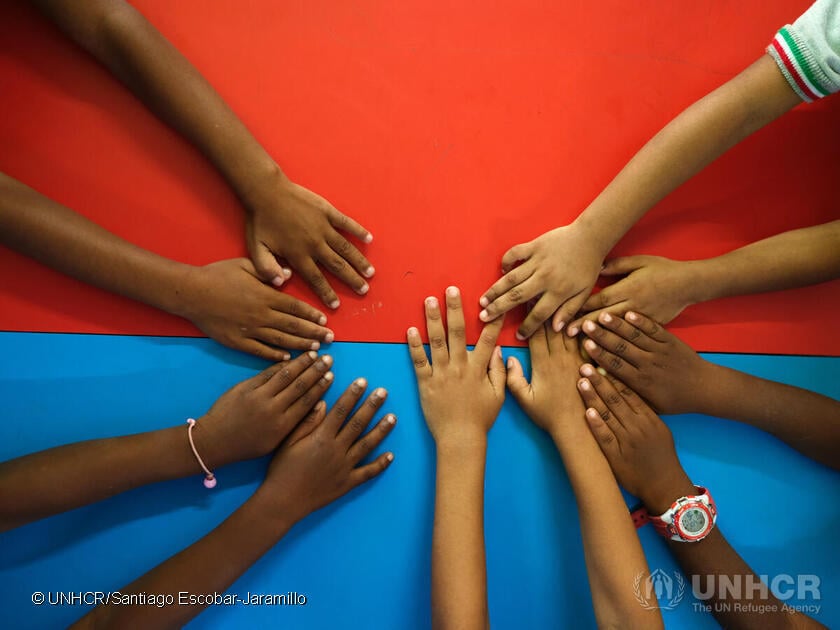By Tarek Abou Chabake and Jean-Christophe Dumont

Data plays a crucial role in humanitarian efforts, providing timely and accurate insights into the needs and vulnerabilities of displaced populations. Yet, evidence-based analysis on forcibly displaced children remains scarce, limiting the ability to design effective policies and programs. To address this gap, UNHCR and the OECD are launching a datathon in the framework of the International Data Alliance for Children on the Move (IDAC). This initiative will bring together experts, researchers, and policymakers to harness data and generate insights that can drive meaningful change for children on the move.
Bridging the Data Gap
UNHCR’s Microdata Library (MDL) currently holds over 850 datasets, including many that provide insights into the experiences of forcibly displaced or stateless children. The datathon provides an opportunity for researchers, data scientists, and policymakers to delve into this wealth of data, identify trends, and propose solutions that address the challenges faced by displaced children. By fostering collaboration and innovation, participants will explore limited access to services, assess vulnerabilities, that could help develop strategies to enhance support and protection for children affected by forced displacement.
The Datathon
The goal of the datathon, which will take place in April, is to generate actionable insights that improve the lives of forcibly displaced and stateless children by leveraging data to inform evidence-based policies and programs. Children affected by forced displacement face unique and complex challenges, including limited access to education, healthcare, and stable living conditions. The datathon will explore key areas such as identifying data gaps, understanding migration patterns, and comparing the experiences of displaced and host community children. Participants will also investigate how legal status, economic conditions, and access to services shape children’s experiences.
Beyond numbers, this datathon is about storytelling—translating complex datasets into meaningful narratives that inform policy and advocacy. Participants will present their findings through interactive reports, visual storytelling, and innovative approaches to data analysis. Submissions will be evaluated on analytical rigor, relevance, creativity, and potential impact., Top two teams will be invited to present their project at the International Forum on Migration Statistics (IFMS) in Malmö, Sweden, in June 2025 and at the next IDAC conference.
This datathon is part of a broader commitment by UNHCR, OECD, and IDAC to improve migration and displacement data. Strengthening national data systems and increasing visibility of displaced children is critical in shaping policies that provide better support and protection. By bringing together experts from different disciplines, the datathon fosters new perspectives and innovative solutions.
Who Can Participate?
The datathon is open to students, researchers, professionals, and data enthusiasts across various fields, including social sciences, public policy, humanitarian work, and data science. It encourages multidisciplinary collaboration, inviting participants with diverse perspectives and skill sets to explore new approaches to migration data analysis.
Participants will have access to a curated selection of MDL datasets, with bulk access provided for ease of use. External datasets can also be added into research.
Looking Ahead
As IFMS 2025 approaches, we invite data professionals, humanitarian actors, and policymakers to be part of this effort. By working together, we can transform data into action and ensure that the needs of forcibly displaced and stateless children are met with evidence-based solutions.
Sign up here and join us for our upcoming webinar on 27 February, where we will share more details about the datathon, datasets, and how you can participate.
